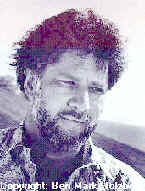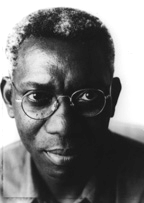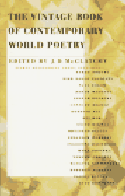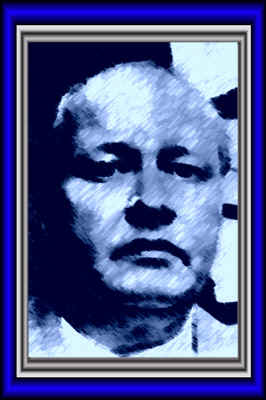 PLEASE BOOKMARK THIS PAGE
PLEASE BOOKMARK THIS PAGE
Great Poets |
Go to March Assignments |
Date |
Class Activities | Readings for the Next Class | Written
Assignment for the Next Class |
||||||||||||||||||||||||||||||||||||||||||||||||||||||||||||||||||||||||||||||||||||
Monday,
|
• Getting
Acquainted • Plan for the Course, Syllabus, Class Notes • Pre-Writing on the Meaning of Poetry for You
|
• Rilke's Letters
to a Young Poet (you have this book). Please read the intro and all the letters. • Rilke's "Ah, poems amount to so little..." www link: http://www.mtsu.edu/~dlavery/rmrquot.htm • Browse through all your books to get an overview of the readings we will be doing. • On Wednesday morning you will be able to read each others' e-mail entries by going to this webpage honr_250_journaling_before_class.htm. |
• Writing
due by e-mail mthamert@csbsju.edu before you go to bed the evening before class. Your entry will be posted on the group journal webpage. • Pick out three thoughts or phrases in Rilke's Letters which seem important or beautiful or otherwise meaningful to you. • Entry 1 Write a commentary including the quotes you select, telling the class why you find the idea important. Put a title on your short essay and make sure you have quoted the text at least three times within your entry. Please always cite the text after the quotation -- like this -- (Rilke, Letters to a Young Poet, p. 123). • More complete instructions here on how to write your entry and how to read others' entries (click). |
||||||||||||||||||||||||||||||||||||||||||||||||||||||||||||||||||||||||||||||||||||
| • Discussion of Letters to a Young Poet.... • The value of solitude and loneliness, vs, relationships with others • The possible addictiveness of relationships or of the pleasures of solitude. • Innocence, childlikeness and young lovers' naiveté compared with the wisdom and accumulation of experience with age. • Id-ego-superego in Freud, Jung and Eastern philosophy and the healthy increase of one's childlikeness. • One's contribution to culture is sometimes in tension with comfort in relationship • Why don't we talk more about love when we know how important love is in our lives? | Poems about
Poetry & Creativity • Read Chapters One and Two of Molly Peacock's How to Read a Poem... and Start a Poetry Circle • Read the 8 poems on the theme of Poetry, Art and Music in the Rag and Bone anthology. Re-read them several times and see if any of them seem to fit together. Annotate them as thoroughly as you can in the time you have. You can check which poems they are here. • On Friday morning, read each others' journal entries and -- like our last class -- come to the group ready to engage a member about what she has written on either Peacock or the poems. honr_250_journaling_before_class.htm. |
• Entry 2 In the first half of your E-mail entry quote the text of Peacock's Chapters 1 & 2. twice. 1/2 screen of your reflections is enough. • In the second half of the screen, ponder the 8 poems in Rag and Bone. Choose 2 quotations from the two poems you like best or which strike you in some important way and tell us why. You may also wish to comment on another poem or two with a quote or two if you feel inspired to do so. Short commentaries are fine. • These are due before you go to bed on Thursday evening. |
|||||||||||||||||||||||||||||||||||||||||||||||||||||||||||||||||||||||||||||||||||||
| Required Texts:
A mentor of mine first introduced me to this little collection of letters by Rainer Maria Rilke when I was a junior in college, and it has been one of those books that I have read and re-read throughout my life, each time with a different kind of understanding. Born in Prague, and having lived in Austria, Russia, Germany, France, and Switzerland, Rilke is said to be the greatest European poet of the 20th century. I think you will discover why in the reading of this book. 2. A Book of Luminous Things: by Czeslaw Milosz (April 1998) Harcourt Brace; ISBN: 0156005743 ;Milosz is one of the finest living poets. Here he has assembled poems from the greatest poets of the world and of all eras and arranged them in thematic chapters, encouraging the reader to imagine the poets themselves talking with each other and with us about "The Secret of a Thing," "The Moment," "People among People," "Woman's Skin," and "Nonattachment" and "Epiphany." Milosz can be considered a poet and anthologist of penetrating insight. His introduction and brief comments to each poem are passionate and enlivening 3. How to Read a Poem--And Start a Poetry Circle by Molly Peacock (April 1999) Riverhead Books; ISBN: 1573221287As one reviewer at Amazon.com puts it, "Starting at her own childhood delight in the appearance and construction of words, Peacock moves on to detailed readings of her talismans the poems that are emblematic of the various emotions or stages of her life. She presents a selection of poets diverse in both style and period. From the soothing repetition of the late Jane Kenyons hymnlike "Let Evening Come," which she recommends as a spiritual tonic, to the unadorned free verse of Yusef Komunyakaas "My Fathers Loveletters," with which she examines her own family life, Peacock rarely falters as she reveals the nuances of language and meaning inherent in each writers work." The final chapter of the book is dedicated to advocating that readers start poetry circles, and Peacock has fellow poets suggest their own talisman poems for readers use. 4. The Rag and Bone Shop of the Heart by James Hillman (August 1993) Harperperennial Library; ISBN: 0060924209This anthology is one of the most popular among students at the College of Saint Benedict and Saint John's University. Rag and Bone is a powerful collection of more than 400 deeply moving poems from renowned poets including Robert Frost, Emily Dickinson, Langston Hughes, Theodore Roethke, Rainer Maria Rilke, Marianne Moore, Thomas Wolfe, Czeslaw Milosz, and Henry David Thoreau. Although the subtitle of the book, "Poems for Men" indicates one way the anthology can be appreciated, the original poets certainly wrote for both women and men. Our discussion of these poems will give us an opportunity to explore gender assumptions in the process of reading and interpretation great poetry. 5. 99 Poems in Translation : An Anthology by Harold Pinter (March 1997) Grove Press; ISBN: 0802134890 ; 6. The Vintage Book of Contemporary World Poetry by J. D. McClatchy (June 1996) Vintage Books; ISBN: 0679741151 ;7. How to Read a Poem and Fall in Love with Poetry by Edward Hirsch (April 1, 1999) Harcourt Brace; ISBN: 0151004196 ;Recommended Texts: 1. The Essential Rumi by Jelalludin Rumi Hardcover - 302 pages (October 1997) Book Sales; ISBN: 078580871X2. Full Woman, Fleshly Apple, Hot Moon : Selected Poems of Pablo Neruda by Pablo Neruda (April 1998) HarperCollins (paper); ISBN: 00609287783. The Selected Poetry of Rainer Maria Rilke by Rainer Maria Rilke. Stephen Mitchell (Translator), Paperback Reissue edition (March 1989) Vintage Books; ISBN: 06797220174. Holy Fire : Nine Visionary Poets and the Quest for Enlightenment by Daniel Halpern ASIN: 0060982039 |
|||||||||||||||||||||||||||||||||||||||||||||||||||||||||||||||||||||||||||||||||||||||
| Theme 1: Poems about Poetry and Creatvity
|
|||||||||||||||||||||||||||||||||||||||||||||||||||||||||||||||||||||||||||||||||||||||
| *Rag and Bone 167 | Thomas, Dylan | In My Craft or Sullen Art | Like Rilke's Letters.. "I write for the lovers" POETRY IS GRIEF | ||||||||||||||||||||||||||||||||||||||||||||||||||||||||||||||||||||||||||||||||||||
| *Rag and Bone 176 | Shakespeare | Sonnet LXV (65) | Fragile beauty vs death, siege of days, Time Decays things. Black Ink!!! | ||||||||||||||||||||||||||||||||||||||||||||||||||||||||||||||||||||||||||||||||||||
| *Rag and Bone 181 | Stafford, William | On the Writing of Poetry | Writing each day is like fishing! Finding a process which will continuously bring new things | ||||||||||||||||||||||||||||||||||||||||||||||||||||||||||||||||||||||||||||||||||||
| *Rag and Bone 187 | Francis, Robert | Pitcher | metaphor of pitching and batting vs what the poet pitcher wants -- the batter to swing too late! | ||||||||||||||||||||||||||||||||||||||||||||||||||||||||||||||||||||||||||||||||||||
| *Rag and Bone Shop 160 | Eskimo | Magic Words | Ur-language of animals becoming human becoming animals. That's the way it was. | ||||||||||||||||||||||||||||||||||||||||||||||||||||||||||||||||||||||||||||||||||||
| *Rag and Bone Shop 162 | Orpingalik (Netsilik Eskimo) | Songs Are Thoughts | Songs - when ordinary speech no longer suffices. The words we need will come of themselves | ||||||||||||||||||||||||||||||||||||||||||||||||||||||||||||||||||||||||||||||||||||
| *Rag and Bone Shop 171 | Amergin and Cessair Traditional Irish | A&C: A Battle of Poetic Incantation | The Great Battle of The Poet Incantors! Gender difference. | ||||||||||||||||||||||||||||||||||||||||||||||||||||||||||||||||||||||||||||||||||||
| *Rag and Bone Shop 27 | Yeats | Mad as the Mist and Snow | Poetry is madness--as mist and snow | ||||||||||||||||||||||||||||||||||||||||||||||||||||||||||||||||||||||||||||||||||||
| *Pinter 99 Poems 36 | Dante Alighieri | Sonnet: DA to Guido Cavalcanti | Dante's love of Guido, voyage of poetry uniting community of hearts, we are free and content | ||||||||||||||||||||||||||||||||||||||||||||||||||||||||||||||||||||||||||||||||||||
| *Pinter 99 Poems 56 | Khlebnikov, Velimir | We chant and enchant | Poetry and words, practitioner of language Jandl type. Wordsmith. | ||||||||||||||||||||||||||||||||||||||||||||||||||||||||||||||||||||||||||||||||||||
| *Pinter 99 Poems 70 | Mallarme, Stephane | A lace curtain self-destructs | poetry itself. Huge influence on later poets like Celan. Nothingness beyond the words. | ||||||||||||||||||||||||||||||||||||||||||||||||||||||||||||||||||||||||||||||||||||
| *Pinter 99 Poems 76 | Michelangelo Buonarroti | On the Painting of the Sistine Chapel | causing the disintegration of my body- painting is my shame! | ||||||||||||||||||||||||||||||||||||||||||||||||||||||||||||||||||||||||||||||||||||
Friday,
|
• Discussion
on Molly Peacock, How to Read a Poem, Chapters 1 & 2. Please come with ideas
from each other's jounral entries. • Discussion of the 8 poems on poetry in Rag and Bone. • Introduce Rilke's "Archaic Torso of Apollo," "The Panther"
|
FOR TUESDAY • Re-read aloud the Rag and Bone poems listed above, noting the sounds, the melody, how words fit together. Notice the images the poet uses. Can you identify with these images? Is the SPEAKER of the poem the same as the POET? Does anything new come up the second or third or fourth time reading a poem (like the new discoveries in meeting with a new friend a second and third time?) • Read and annotate the 4 Pinter poems noted above by Dante, Khlebnikov, Mallarme, and Michelangelo. Jot down some obsevations and questions for our discussion. Which of the four poems can you identify most closely with? Which one matters the most to you?
|
FOR TUESDAY |
||||||||||||||||||||||||||||||||||||||||||||||||||||||||||||||||||||||||||||||||||||
 |
|||||||||||||||||||||||||||||||||||||||||||||||||||||||||||||||||||||||||||||||||||||||
Tuesday, |
• Discussion
of The Reader and the Poet
-- what each needs from the other. • Discussion of "Sonnet: Dante Allighieri to Guido Cavalcanti." • Discussion of Michelangelo's "On the Painting of the Sistine Chapel.
|
Reading for
Thursday, February 10 • Read Chapter 1 of Edward Hirsch's How to Read a Poem. This is a first-time reading with no written assignment. For Next Monday you will be asked to re-read the chapter and write an entry on it. • Feel free to read further poems from the theme on poetry, especially if you would like to focus some future essay on this topic. Theme of Poetry • Look through the web for further info on a poet or two you are especially drawn to. Bookmark these places and/or send me a note with the web address if you think the information would be helpful to the class. |
For Thursday, February 10 -- |
||||||||||||||||||||||||||||||||||||||||||||||||||||||||||||||||||||||||||||||||||||
| Thursday,
February 10 3 The Arrival of Cessair in Ireland with 50 Women and 3 Men |
|
Reading for Monday, February 14... • Chapter 1 of Edward Hirsch, How to Read a Poem ... and Fall in Love with Poetry. • Read the four poems listed below (Pinter Anthology) on the theme of Human Wildness by Amergin, Anacreontia, Baudelaire and Martial. • Re-read the poems by Mallarmé and Khlebnikov in the 99 Poems anthology to heighten our class discussion.
|
Writing
For Monday, February 14 ... • Entry 5 Write
an Entry on the Hirsch chapter, using as a subject line... • Continue reading and revising your own poem on some aspect
Poetry and Creativity. When you are ready, submit your poem -- it's still a draft --
by e-mail. For now your poems will be posted. We will talk about the idea of
an on-line poetry magazine for those who would like to explore that kind of project.
|
||||||||||||||||||||||||||||||||||||||||||||||||||||||||||||||||||||||||||||||||||||
| Theme 2: Poems about Human Wildness
|
|||||||||||||||||||||||||||||||||||||||||||||||||||||||||||||||||||||||||||||||||||||||
Source |
POET |
POEM |
Wildness |
||||||||||||||||||||||||||||||||||||||||||||||||||||||||||||||||||||||||||||||||||||
| *Pinter 99 Poems | Amergin | Amergin's Charm | Pagan | ||||||||||||||||||||||||||||||||||||||||||||||||||||||||||||||||||||||||||||||||||||
| *Pinter 99 Poems | Anacreontia | Drinking | All of nature drinks - me too! | ||||||||||||||||||||||||||||||||||||||||||||||||||||||||||||||||||||||||||||||||||||
| *Pinter 99 Poems | Baudelaire, Charles | The Albatross | Of poets not contained by eartha | ||||||||||||||||||||||||||||||||||||||||||||||||||||||||||||||||||||||||||||||||||||
| *Pinter 99 Poems | Martial | Either get out of the house or conform to my tastes, woman | Naughty Eros | ||||||||||||||||||||||||||||||||||||||||||||||||||||||||||||||||||||||||||||||||||||
| *Rag and Bone Shop 12 | Hölderlin | Bread and Wine part 7 | Poets are like the holy disciples of the Wild One | ||||||||||||||||||||||||||||||||||||||||||||||||||||||||||||||||||||||||||||||||||||
| *Rag and Bone Shop 13 | Rumi | Has Anyone Seen the Boy? | Round faced trouble-maker | ||||||||||||||||||||||||||||||||||||||||||||||||||||||||||||||||||||||||||||||||||||
| *Rag and Bone Shop 27 | Yeats | Mad as the Mist and Snow | Mad as Snow are our keen minds -- like Cicero and Homer | ||||||||||||||||||||||||||||||||||||||||||||||||||||||||||||||||||||||||||||||||||||
| *Rag and Bone Shop 30 | Holm, Bill | Advice | If you don't go for the black-eyed woman now, your life won't change! | ||||||||||||||||||||||||||||||||||||||||||||||||||||||||||||||||||||||||||||||||||||
| *Rag and Bone Shop 6 | William, William Carlos | Danse Russe | A person man going wild in the early morning sunshine | ||||||||||||||||||||||||||||||||||||||||||||||||||||||||||||||||||||||||||||||||||||
| *Rag and Bone Shop 9 | Rumi | Four Quatrains | In the shambles of love… Tonight wine is being poured… Two strong impulses… | ||||||||||||||||||||||||||||||||||||||||||||||||||||||||||||||||||||||||||||||||||||
| World | Poems by Other Poets (Intertexuality) | The Poet's Life | & Her Other Poems | Poet ____________ | _________ Reader | (community of readers) | | Language Itself | The Work Itself The Implied Poet The Implied Reader
|
|||||||||||||||||||||||||||||||||||||||||||||||||||||||||||||||||||||||||||||||||||||||
| Monday, February 14 5 |
Poems about Human
Wildness
|
Reading for Wednesday: • Hölderlin, Rumi, Yeats, Holm, and Williams poems on wildness listed above. Re-read them several times to see which ones speak to you the most.
|
Writing for
Wednesday: The purpose of this assignment is to gain flexibility in what we think and write about in conversing with a poem and to enhance our skills at close line-by-line reading. Give it a try!
|
||||||||||||||||||||||||||||||||||||||||||||||||||||||||||||||||||||||||||||||||||||
| Wednesday,
February 16 1 |
|
||||||||||||||||||||||||||||||||||||||||||||||||||||||||||||||||||||||||||||||||||||||
Friday, |
No Class, Instead, meeting with Fr. Mark Thursday Evening at the Meeting Grounds -- 7pm Anne -- 7:15pm Sersch -- 7:30pm Stephanie -- 7:45 Scott -- 8pm Joanna -- 8:15 Jennifer -- 8:30 Kate -- 8:45 Rachel -- 9pm Kevin -- 9:15 Adam. John: 11AM Friday my office -- Jeff: 11:20AM Friday my office. Ryan and Tim -- (next week). | ||||||||||||||||||||||||||||||||||||||||||||||||||||||||||||||||||||||||||||||||||||||
Poems for class on Tuesday
there is a girl inside by Jalalludin Rumi
|
|||||||||||||||||||||||||||||||||||||||||||||||||||||||||||||||||||||||||||||||||||||||
Tuesday, |
|
For next time we will discuss Hölderlin's
"Bread and Wine," Bill Holm's "Advice," Rumi's "Has Anyone Seen
the Boy," and the three poems above by Lucille Clifton and Rumi, one which we
listened to in class. 1 & 2. Please write a response to two different class members' entries, turning to members of the class you have not addressed before in this way. The purpose of these responses is to enhance the feeling of community and the depth of our communal insights into the poetry we encounter. 3. Also write an entry on one of the poems by either Clifton or Rumi above dealing with human wildness. ( Entry 8) You may try a reader-response approach, taking a line or two at a time and recording your experience, your questions, your assocaitions and the way you can or cannot identify with the poem. Or you may wish to do some research into the author's life to shed some light on what you are reading.Question for class discussion: |
|||||||||||||||||||||||||||||||||||||||||||||||||||||||||||||||||||||||||||||||||||||
Thursday,
|
Poems about Family Relations
|
Reading For Thursday: __ Read Chapter Ten in Molly Peacock's How to Read a Poem... and Start a Poetry Circle, pp. 126-148. Carefully annotate and ponder the poems on fathers and writing by Yusef Komunyakaa and Michael Ondaatje, reading each poem several times and being aware of how your understanding subtly shifts each time you read it. __Get a start on the project in the Vintage Book of Contemporary World
Poetry. (Click on the image at the left for detailed information.) |
Writing for Thursday: __ Write an entry on one of the poems in Peacock's Chapter Ten -- either 9. (Komunyakaa or Ondaatje) // (Title to Pull In Your Reader) __ Write an entry describing all the things Peacock chooses to talk about in responding to the poem. Later in your entry, reflect on how you personally can expand the way you respond to a poem by Peacock's example. 10. Peacock's Chapter Ten // (Your Weird Title) |
||||||||||||||||||||||||||||||||||||||||||||||||||||||||||||||||||||||||||||||||||||
| Poems on the Theme of Family Relationships
|
|||||||||||||||||||||||||||||||||||||||||||||||||||||||||||||||||||||||||||||||||||||||


Michael Ondaatje Jusef Komunyakaa |
|||||||||||||||||||||||||||||||||||||||||||||||||||||||||||||||||||||||||||||||||||||||
Monday,
February 28
|
 Our Next Project: Small group meeting to choose a poet before Wednesday's class, March 1 |
Readings for Monday: __ two poems from our Rag and Bone anthology -- Theodore Roethke's "My Papa's Waltz," p. 130; and Robert Hayden's "Those Winter Sundays," p. 141. __Please purchase the Vintage Anthology from the bookstore and choose a poet you would like to work on. In class you will set up a time to meet with your small group to narrow your choice to one poet by Wednesday. __ We will have a somewhat shorter class again on Monday (we will meet until noon), but you can use the extra time to meet with your group if you are ready to discuss your choices |
Writing for Monday. __ Write an entry on either Roethke's or Hayden's poem. Please use the number 12 to start your subject line for easier reference, like this: 11. (Roethke or Hayden) // (Your Outrageous Title) __ If you have the inclination, feel free to scour the net for images or biographical items about either Roethke or Hayden which we can use for class. Simply do an extra entry if you would like to alert us to some good source(s). |
||||||||||||||||||||||||||||||||||||||||||||||||||||||||||||||||||||||||||||||||||||

 Theodore Roethke Robert Hayden "My Papa's Waltz" "Those Winter Sundays" |
|||||||||||||||||||||||||||||||||||||||||||||||||||||||||||||||||||||||||||||||||||||||
Wednesday, |
Linda McCarriston |
For Wednesday: __ Listen to the cassette tape handed out in class featuring the voices and poetry of Sandra McPherson and Linda McCarriston __ Time permitting, do some browsing on the web or in the library for images and biographical information on either Sandra McPherson or Linda McCarriston.
|
Writing for Wednesday: __ Write out in an entry -- as well as you can -- one of the poems by either Sandra McPherson or Linda McCarriston which you found most poignant in your lsitening to the tape. Then write an entry -- a line-by-line explication in a kind of reader-response is often the most effective and adequate approach tp poems like this. Make sure you explore well beyond a simple paraphrase for each line, talking about the inner tensions of the poem, the ambiguities, and how you are forced to change your mind at every step along the way. Quote the text and pay close attention to the sounds of the words and how these sounds coincide or clash with the apparent sentence and line meaning. 12. (McPherson or McCarriston) // (A Title for Your Entry Which Helps Tease Us into Reading What You Have to Say)
|
||||||||||||||||||||||||||||||||||||||||||||||||||||||||||||||||||||||||||||||||||||
|
|
|||||||||||||||||||||||||||||||||||||||||||||||||||||||||||||||||||||||||||||||||||||||
Friday, |
Poems about the Community or Nation We Live In; Poems about War and Political Engagement | ||||||||||||||||||||||||||||||||||||||||||||||||||||||||||||||||||||||||||||||||||||||
Tuesday, |
|||||||||||||||||||||||||||||||||||||||||||||||||||||||||||||||||||||||||||||||||||||||
Thursday, |
Poems about Kinds of Love in Human Experience, Earthly Love, Friendship | ||||||||||||||||||||||||||||||||||||||||||||||||||||||||||||||||||||||||||||||||||||||
Monday, |
|||||||||||||||||||||||||||||||||||||||||||||||||||||||||||||||||||||||||||||||||||||||
Wednesday, |
|||||||||||||||||||||||||||||||||||||||||||||||||||||||||||||||||||||||||||||||||||||||
Friday, |
Poems about the Beauty of Things | ||||||||||||||||||||||||||||||||||||||||||||||||||||||||||||||||||||||||||||||||||||||
SPRING BREAK |
|||||||||||||||||||||||||||||||||||||||||||||||||||||||||||||||||||||||||||||||||||||||
Tuesday, |
|||||||||||||||||||||||||||||||||||||||||||||||||||||||||||||||||||||||||||||||||||||||
Thursday, |
Poems about The Moment, Carpe Diem, Living in the Present | ||||||||||||||||||||||||||||||||||||||||||||||||||||||||||||||||||||||||||||||||||||||
| Monday, April 3 |
|||||||||||||||||||||||||||||||||||||||||||||||||||||||||||||||||||||||||||||||||||||||
| Wednesday, April 5 |
Poems about Identity, Grief, Voice, Epiphany | ||||||||||||||||||||||||||||||||||||||||||||||||||||||||||||||||||||||||||||||||||||||
| Friday, April 7 |
|||||||||||||||||||||||||||||||||||||||||||||||||||||||||||||||||||||||||||||||||||||||
| Tuesday, April 11 |
|||||||||||||||||||||||||||||||||||||||||||||||||||||||||||||||||||||||||||||||||||||||
| Thursday, April 13 |
|||||||||||||||||||||||||||||||||||||||||||||||||||||||||||||||||||||||||||||||||||||||
| Monday, April 17 |
Poems about Non-Attachment | ||||||||||||||||||||||||||||||||||||||||||||||||||||||||||||||||||||||||||||||||||||||
| Wednesday, April 19 |
|||||||||||||||||||||||||||||||||||||||||||||||||||||||||||||||||||||||||||||||||||||||
| EASTER | |||||||||||||||||||||||||||||||||||||||||||||||||||||||||||||||||||||||||||||||||||||||
| Tuesday, April 25 |
Poems about God, The Transcendent, Mystic Experience | ||||||||||||||||||||||||||||||||||||||||||||||||||||||||||||||||||||||||||||||||||||||
| Thursday, April 27 |
|||||||||||||||||||||||||||||||||||||||||||||||||||||||||||||||||||||||||||||||||||||||
| Monday, May 1 |
|||||||||||||||||||||||||||||||||||||||||||||||||||||||||||||||||||||||||||||||||||||||
| Wednesday, May 3 |
|||||||||||||||||||||||||||||||||||||||||||||||||||||||||||||||||||||||||||||||||||||||
| Friday,
May 5 |
Poems about Looking Back on Life, Death, The Afterlife, The Cosmos | ||||||||||||||||||||||||||||||||||||||||||||||||||||||||||||||||||||||||||||||||||||||
| Tuesday, May 9 |
|||||||||||||||||||||||||||||||||||||||||||||||||||||||||||||||||||||||||||||||||||||||
| Thursday, May 11 |
|||||||||||||||||||||||||||||||||||||||||||||||||||||||||||||||||||||||||||||||||||||||
| Monday, May 15 |
|||||||||||||||||||||||||||||||||||||||||||||||||||||||||||||||||||||||||||||||||||||||
| Finals --- W, Th, F --- May 17, 18, 19 | |||||||||||||||||||||||||||||||||||||||||||||||||||||||||||||||||||||||||||||||||||||||
|
Syllabus,
Class Description and Required Texts |
| Purpose of the Course. The purpose of Great
Poets is to introduce class members to a wealth of classical and modern poetry from around
the world. As yo u can see from the syllabus above, we will go through poems in a thematic way in order to facilitate class discussion about how these poems ask us to examine our own lives and perhaps live differently in the world. Class Activities. The following are the main activities for our Great Poets class, although there will be some flexibility in shifting emphases so that activities remain meaningful and dynamic.
|